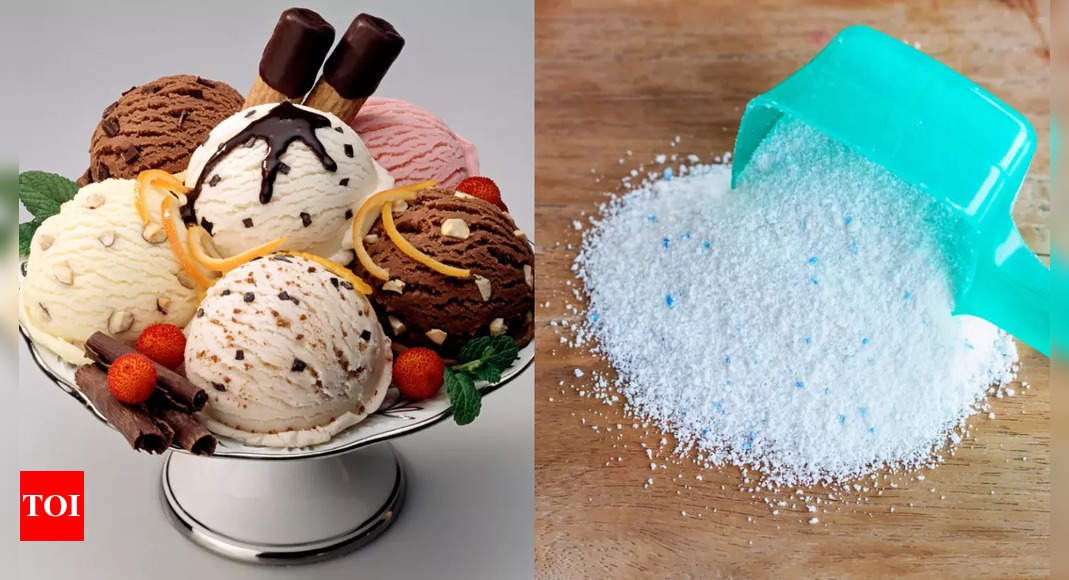Adulterated Ice Cream and Beverages in Bengaluru: Detergent and Harmful Chemicals Discovered
Unclean Conditions and Inferior Products
With summer on the horizon, the demand for ice cream, ice candy, and cool drinks increases. Unfortunately, in Karnataka, local manufacturing units have been identified by the Food Safety and Drug Administration Department (FDA) for selling inferior products under unsanitary conditions. Out of 220 shops, 97 have received notices for improper storage.
Detergent Powder and Phosphoric Acid Utilization
- Detergent powder is added to creams to create a rich texture.
- Phosphoric acid is used in beverages to boost fizz.
Phosphoric acid can weaken bones. A fine of Rs 38,000 has been imposed on the offending party for these harmful practices.
Synthetic Milk and Dangerous Additives
- Manufacturers are using synthetic milk made from detergent, urea, or starch to save money.
- Instead of natural sugar, harmful additives like saccharin and unauthorized dyes are used to improve taste and color.
Contaminated Water and Excessive Flavoring Agents
- Many manufacturers use contaminated or non-potable water in ice candies and cool drinks.
- Flavoring agents are added beyond the permissible limits.
Consequences of Consuming Detergent Powder
Detergent powder is not safe for consumption. Ingestion can result in severe health issues such as nausea, vomiting, and diarrhea. The strong alkaline and acidic components in detergent can cause burns in the throat, esophagus, and stomach. Inhalation during consumption can cause coughing, wheezing, and breathing difficulties. Long-term exposure or high doses can harm the kidneys and liver.
Phosphoric Acid: Definition and Consequences
Phosphoric acid is a colorless, odorless, and acidic chemical found in food, industrial, and cleaning products. It is common in soft drinks (especially colas), fertilizers, detergents, and rust removers. Excessive consumption can increase the risk of kidney stones and kidney disease in individuals with pre-existing kidney conditions. It can also lead to osteoporosis and tooth decay.



